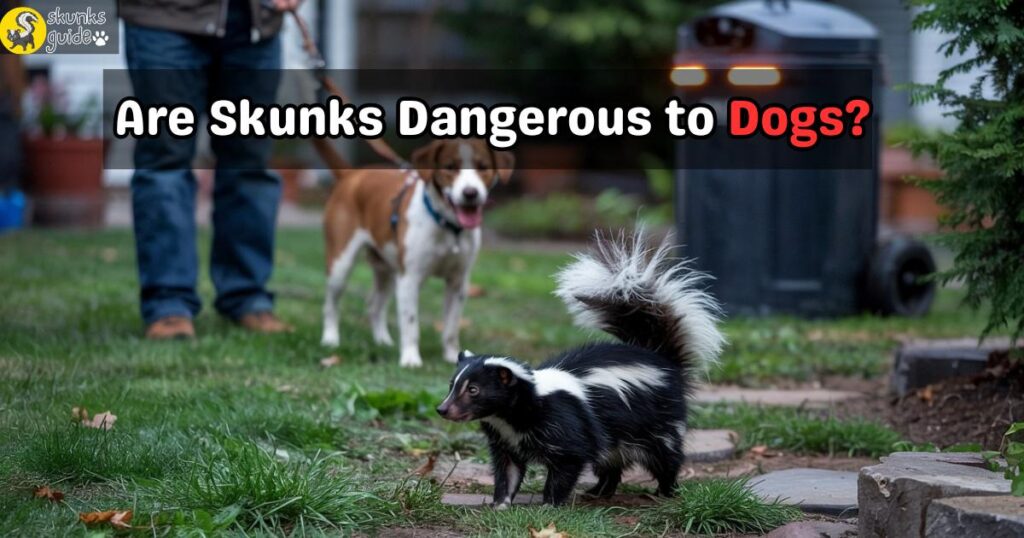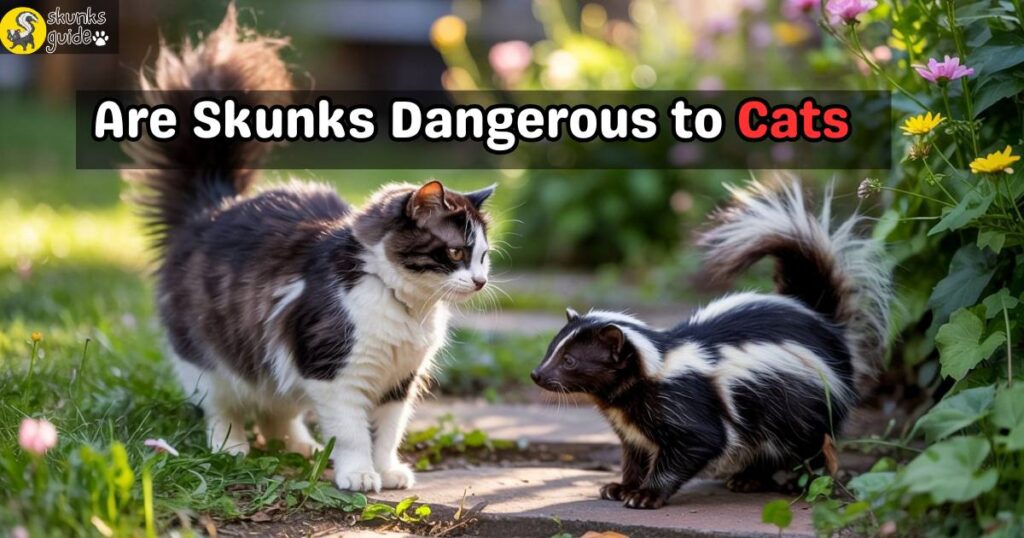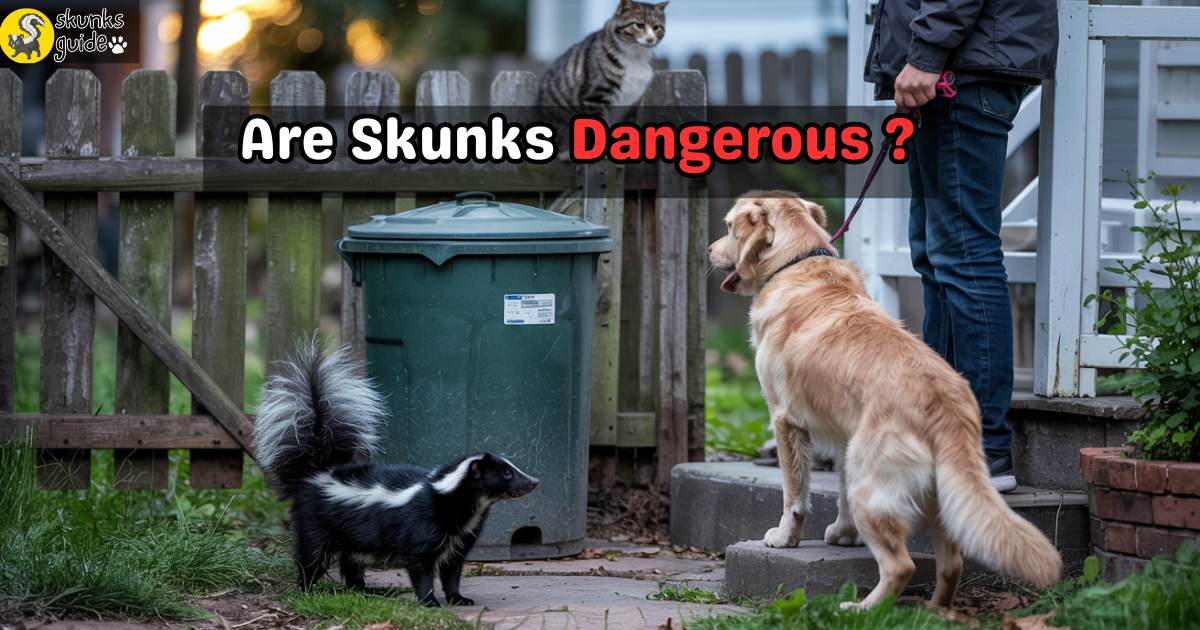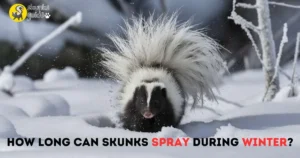Are Skunks Dangerous? Risks to Humans, Dogs & Cats Explained
Yes, skunks can be dangerous, but not in the way most people think. They’re not aggressive attackers—rather, their danger lies in disease risk, defensive spray, and the potential for conflict with pets. As someone who’s spent years researching wild mammals and working alongside pet skunk owners, I’ve seen both sides of the story.
During one of my research trips in rural Colorado, I watched a wild skunk curiously approach a dog’s food bowl left on a porch. The dog lunged; the skunk sprayed—and both animals were in distress. That single incident taught me what many pet owners later confirmed: understanding skunk behavior can prevent a lot of stinky and risky situations.
Understanding Skunk Temperament
Skunks are not aggressive predators. In the wild, they:
- Forage at night for insects, berries, and small rodents
- Avoid confrontation whenever possible
- Give clear warnings (foot-stomping, hissing) before defending themselves
Personal Note: I spent years with a pet skunk named Luna—she was the sweetest companion. She’d never “attack” unprovoked, but she’d make it clear she felt threatened long before ever spraying.
The Real Dangers: Disease & Parasites
The primary concern with skunks isn’t their spray—it’s what they can carry:
- Rabies
- Skunks are one of the top wild reservoirs for rabies in North America.
- A bite or scratch from an infected animal can transmit the virus.
- Parasites & Pathogens
- Skunks can host fleas, ticks, roundworms, and leptospirosis.
- These can spread to pets or, rarely, humans.
| Risk Factor | Impact |
|---|---|
| Rabies | Fatal if untreated; requires immediate medical attention |
| Fleas & Ticks | Can transmit Lyme disease, tapeworms, other illnesses |
| Roundworms | Digestive issues; possible transmission to pets/humans |
| Leptospirosis | Causes flu‑like symptoms; can affect kidneys and liver |
Takeaway: Never handle a wild skunk. If you see one acting oddly—daylight activity, disorientation, drooling—keep your distance and alert animal control.
Defensive Tactics: Spray, Scratch & Bite
Is Skunk Spray Dangerous?
Skunk spray is a thiol-based oily substance. Effects include:
- Powerful odor that can linger for days
- Eye irritation and tearing if aimed at the face
- Skin discomfort but not true chemical burns
In most cases, a thorough wash with soap, water, and the classic hydrogen peroxide + baking soda mix neutralizes the smell.
Can Skunks Scratch or Bite?
If cornered, a skunk may:
- Scratch with sharp front claws
- Bite as a last resort
Such incidents risk infection and, in rare cases, rabies transmission. Seek medical care for any wounds.
Are Skunks Dangerous to Dogs?

Dogs—especially curious puppies—often want to chase or sniff wildlife. Consequences can include:
- Spray incidents: Dogs sprayed in the face may shake, foam, or temporarily lose vision. A tomato‑juice bath or special odor remover usually fixes it.
- Rabies risk: A bite or serious scratch is a medical emergency.
- Parasites: Dogs can pick up fleas, ticks, or worms from a skunk den site.
Prevention Tips:
- Keep dogs on leash during dusk/dawn
- Secure garbage and compost
- Prevent digging under sheds or decks
Are Skunks Dangerous to Cats?

Cats generally fare better due to agility, but they still face risks:
- Spray: Less common—cats often avoid skunks—but still possible if they corner them.
- Rabies: Cats can contract rabies from a scratch or bite.
- Parasites: Outdoor cats can carry ticks and fleas into the home after a skunk encounter.
Prevention Tips:
- Supervise outdoor time, especially at night
- Use flea and tick preventative medication
- Discourage cats from exploring skunk-friendly hiding spots
Living Peacefully with Skunks
Despite the risks, skunks offer ecological benefits by controlling pests. Here’s how to coexist safely:
- Secure Attractants
- Lock trash cans with bungee cords
- Bring pet food inside at night
- Clean up fallen fruit or bird seed
- Deter But Don’t Harm
- Install motion‑activated lights or sprinklers
- Use natural repellents: citrus peels, ammonia‑soaked rags
- Respect Their Space
- Observe from a distance—binoculars are great!
- Leave den‑sealing efforts until kits have grown and left in late summer
At a Glance: Skunk Danger Overview
| Question | Answer |
|---|---|
| Are skunks dangerous? | Only if threatened or diseased; not natural aggressors |
| Are skunks dangerous to dogs? | Spray and rabies risk; typically non‑fatal if cleaned quickly |
| Are skunks dangerous to cats? | Similar risks as dogs; cats’ agility helps avoid most encounters |
| Is skunk spray dangerous? | Unpleasant and irritating but not life‑threatening |
| Main risks | Rabies, parasites, bite/scratch wounds |
Frequently Asked Questions
A: No—they prefer to flee. Only if cornered or protecting kits will they stand their ground.
A: Rinse with a solution of hydrogen peroxide, baking soda, and dish soap, then bathe normally.
A: Only in regions where it’s legal—and with proper vaccination, training, and care.







